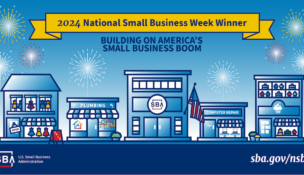Who owns the trademark to "You're fired!"?
Hint: It's not who you think
Peter Lemire //January 12, 2016//


Who owns the trademark to "You're fired!"?
Hint: It's not who you think
Peter Lemire //January 12, 2016//

Since it seems Donald Trump is on everyone’s radar screen, I decided that I must write a column on “The Donald.” Before you roll your eyes and prepare to tune out another political rant, let me assure you that my focus is purely related to intellectual property and a typical tension that many celebrities, and sometimes companies, face when trying to protect catchphrases.
Think back to 2004–05, when The Apprentice first aired. Hosted by Trump, the reality TV show featured contestants from various backgrounds who competed to win a job with Trump’s organization. The contestants were split into teams and were assigned tasks designed to assess their business acumen. At the end of each episode, the loosing team would be brought into the boardroom and Trump would let one member of the team go with the catchphrase “You’re fired!”
As the show gained popularity, the “You’re fired!” catchphrase began to proliferate, appearing on T-shirts, coffee mugs and a variety of knickknacks. Trump had anticipated this possibility, and 11 days after the first episode aired in January 2004, he filed trademark applications for use of “You’re fired!” with respect to goods including clothing, casinos, home furnishings, toys and alcoholic beverages.
The trademark filings made the news. People even wondered whether managers could tell someone they were fired without committing trademark infringement. The fervor eventually died down, but if you flash forward to today and ask people who owns the “You’re fired!” trademark, most would answer, “Donald Trump.”
But he doesn’t. There are only two live registrations in the U.S. Patent and Trademark Office (USPTO) for “You’re fired!” or derivatives. One registration is owned by You’re Fired LLC in Bedford, New Hampshire, for use with paint-your-own pottery studios. The other registration—“As my apprentice, You’re never fired” for use with evangelistic and ministerial services—is owned by GodSpeaks Inc. in Atlanta.
How is it possible that Trump doesn’t have protection over one of the most popular catchphrases on TV? While there are actually many different reasons his applications never issued into registrations, some of which likely were business decisions by Trump, others are illustrative of the difficulty in protecting catch phrases, especially when those phrases are the product.
In review, trademarks protect brands. Technically, we trademark lawyers would say that trademarks are identifiers of someone’s goods or services in commerce, but it is simpler to think of the marketing concept of a brand. That would include product names, logos and yes, even taglines. However, the sticking point with a lot of catchphrases is that the trademark has to identify specific goods or services, which causes an issue if the phrase itself is the good.
Think of other famous taglines, such as the “Ultimate Driving Machine” for BMW automobiles, or the “Quicker Picker Upper” for Bounty paper towels. These taglines are directly associated with the product they are used with, and when you hear these phrases you think cars, or paper towels. Each carries a distinct impression about quality or other product features.
The issue with a lot of taglines, especially those coined by celebrities, is that in most instances they do not act as brands because they don’t identify a good or service in commerce. This is especially true with clothing. Around the time The Apprentice aired, we saw the rise of what I call the “slogan shirt.” These are simply shirts or sweatshirts that had slogans or clever sayings on them. The creator of the slogan shirt would want to protect the saying so that others couldn’t copy it. These slogans are not patentable, because they aren’t inventions. They’re not copyrightable because U.S. copyright law explicitly prohibits copyright protections for short phrases or sayings. People turned to trademark in an attempt to get some sort of protection.
These sorts of applications, however, are routinely rejected by the trademark office as being “merely ornamental.” That is, the slogans and designs that appear on goods like clothing, coffee mugs, and note pads are aesthetic designs and do not function as a brand. That makes sense. Would you go to the store planning to buy “You’re fired!” pants? Probably not. But you would go to the store looking for a pair of Levi’s. The key difference is that Levi’s is a brand.
Other slogans have been deemed to be merely informational. Volvo unsuccessfully tried to trademark “Drive Safely,” but the USPTO reasoned that the slogan was just a good suggestion that we should all follow and did not act to identify Volvo’s cars.
For those wanting to protect a tagline that you use with your goods or services, do not despair. With proper planning and forethought, a business can ensure that its slogan is a protectable trademark, as opposed to an ornamental design or a merely informational statement. Just ask the people at You’re Fired pottery studio.

























